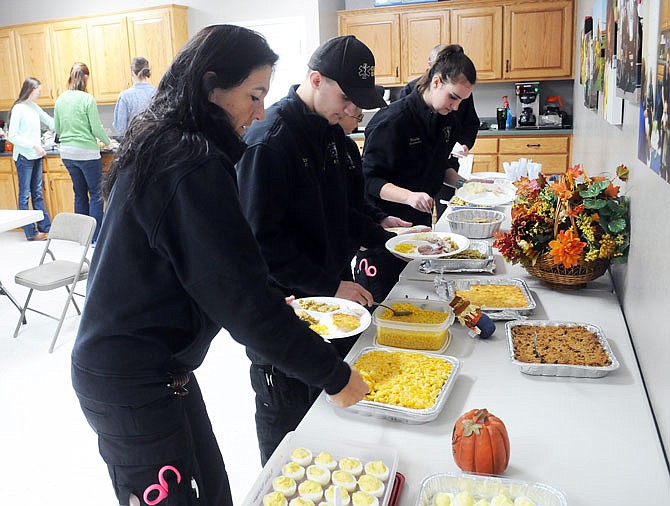Thanksgiving and all holiday celebrations prioritize indulgence and healthy regulation.
With all of the confusing information out there about staying healthy during the holidays, it can be difficult to know which foods to choose. Overeating and restrictive eating are both unhealthy for us, whereas healthy eating incorporates balance, variety and moderation. As the holiday season begins, keep the following thoughts in mind:
Food is not moral: One of the frequent topics of conversation in my job as a dietitian centers around which foods are "good" and which foods are "bad." My answer as a dietitian never changes. Foods are not "good" or "bad;" they are not moral. Occasionally enjoying foods that are higher in fat, carbs, sugar, calories or whichever nutrient is currently unpopular, has no moral implication. All foods offer some form of nutrition, and all foods fit in a healthy diet. To be clear, I am not advocating for replacing all of your vegetables with pie this Thanksgiving or only eating a plate full of holiday protein. I am encouraging you to make food decisions that prioritize your overall health. No one food makes or breaks a person's nutrition, so give yourself permission to stop loathing yourself because of a food decision you made.
Compensatory behaviors: Just because you may overeat at a holiday meal does not mean that you need to do additional exercise. Exercise is important for overall health and well-being. Physical activity can help us feel better on otherwise sedentary holiday celebration days, but when used to "make up" for other decisions it becomes inappropriate. Exercise is not something we must do to our bodies; it is something that we do with and for our bodies. Instead of running extra laps or skipping meals prior to a big holiday gathering, use your body's current routines to help moderate eating behaviors. Take time to listen to what your body is feeling. If that means leaving some food on your plate, eating a smaller dinner portion to make room for some dessert, or taking a walk after dinner to get some fresh air, then take your own advice!
Be forgiving: If you are trying to work toward specific health goals, start small. Maybe you overeat every year on Thanksgiving and have vowed to never do it again. Understand that even when you fall short of a goal, you still learned something about your body and yourself. The reality of making lifestyle and diet changes is that there are setbacks. Do not let the setbacks make you feel like you failed. If you set a goal for the holiday season and you do not meet it, start by asking yourself why. Was it a practical or achievable goal? Were you specific in what you were trying to achieve and able to measure the results? Give yourself some grace and revise your goals as necessary.
Knowledge is not behavior change: Knowing that something is important does not make it important to you. Dietitians constantly hear, "I know what I need to do; I just do not do it." If you find yourself having trouble making changes even when you know what is healthful for you, you are not alone. Everyone has some behavior that they can improve on. Like anything in life, behavior change gets prioritized. To help move difficult goals to the top of the priority list, break them into small, manageable steps and incorporate them into your daily routine. Rome was not built in a day, and food behaviors are not either.
Katherine Burr is an outpatient dietitian at Capital Region Medical Center where she enjoys teaching others about nutrition in disease management and the joy of food in everyday life. Visit her website at KatherineBurrRD.com.

